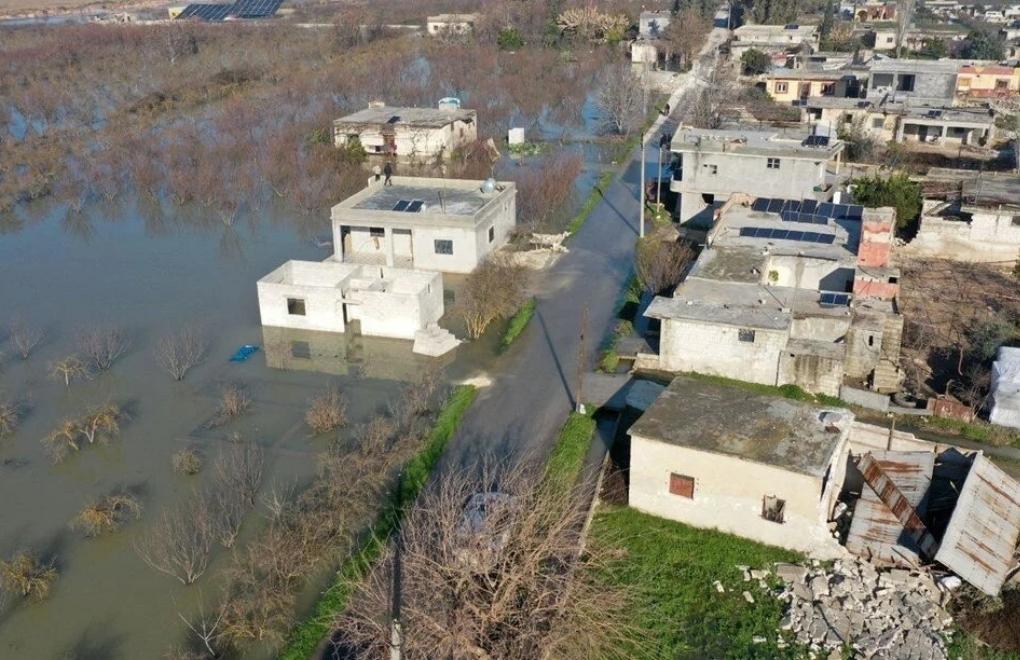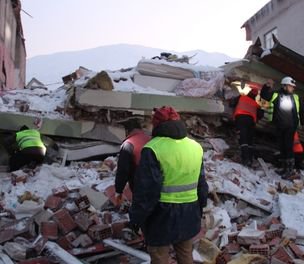Photo: A village in Idlib was flooded after the earthquakes damaged a local dam, AA
Click to read the article in Turkish
Teams of the State Hydraulic Works (DSİ) of the Ministry of Agriculture and Forestry of Türkiye examined 140 facilities with reservoirs in the earthquake-hit region and near it, the Ministry announced.
The claims on social media that some dams were damaged and that floods took place and destructed settlements were not true.
Even if some cracks are observed in the crests of some dams, there is no water leakage observed. However the river current rose sharply, it was observed announced by the Ministry.
From 15 cubic meters to 130 cubic meters
There was a warning at 11:20 am. on February 9 about a sharp rise in the river current and that it had risen from 15 cubic meters to 130 cubic meters in the Orontes river. The covers of the Afrin drying canal were opened and water was directed partially to this canal.
The Ministry also announced that some problems were identified in eight dams in the earthquake-hit regions in Türkiye and that necessary measures were taken. Some dams have been emptied gradually.
Village in Idlib, Syria flooded
In Idlib province's al-Tlul village, which is 15 km away from the border with Türkiye, there was a flood after a local dam collapsed that wiped out thousands of acres of arable land, reported Anadolu Agency on February 10.
Thousands of people were forced to leave their homes in the al-Tlul village to relatively safer areas after the flood.
Problems identified in eight dams
Sultansuyu Dam in Malatya: A crack formed in the crest and deformation in the body of the dam. The dam was emptied as a precautionary measure. The area from this dam to the next one which is the Karakaya Dam was forbidden for people to enter as a precaution.
Kalecik Dam in Osmaniye: A crack was identified in the crest of the dam.
Kartalkaya Dam in Maraş: A crack was identified in the crest of the dam.
Sürgü Dam in Malatya: A crack was reported in the crest of the dam.
Bahçe Arıklıkaş Pond in Osmaniye: A crack was identified in the crest. The pond was emptied considering the deformation in the body could constitute a risk and the water was brought to the lowest level.
Reyhanlı Dam in Hatay: Cracks were identified in the crest and deformations in the body of the dam. Observations continue and the water level is below the minimum.
Nurdağı Hamidiye Dam in Gaziantep: A crack was identified in the crest.
Yarseli Dam which was on the agenda on social media: Cracks were identified on the road over the crest. The road was closed to traffic.
Atatürk Dam: No problems were observed in the preliminary examinations. (TY/PE)





